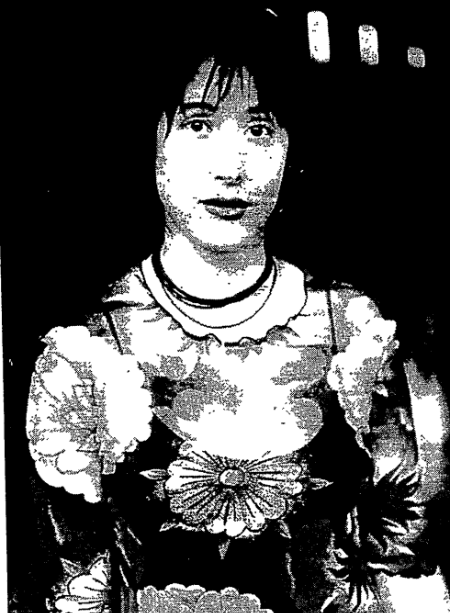Look who's back in charge
Where has Michelle Shocked been lately? Playing Star Wars

Clashes between the corporate and the creative have long been a part of the music industry. Few such struggles, however, have been more bitter than the one involving Michelle Shocked. For almost four years, Mercury, the company to which the American singer was contracted, refused even to speak to her. Then she issued a lawsuit citing the 13th Amendment to the American Constitution, the one which abolished “slavery and involuntary servitude.” Shocked has just won both the case and complete control over her career and artistic direction.
“People might say I’m difficult, but did you ever hear anyone describe a label as difficult?” she says. “By nature, artists should challenge. When they call you difficult it is a reflection of the imbalance of power.
“The corporate culture is based on intimidation. They had very narrow expectations of what I should do. It never occurred to me that businesspeople and lawyers could try to define art.”
After releasing three successful albums of witty, intelligent songs between 1988 and 1992, songs that drew deeply on the folk traditions of American music, Shocked decided she wanted to do something different. Actually, I planned to have a nervous breakdown and from the ashes of that find my true voice,” she says. “Then I proposed a funky rhythm and blues album.”
The record company president asked for an acoustic album. Shocked refused: her existing contract purportedly gave her control over artistic content. Compromises were made, Shocked submitted a modified proposal and was all ready to record a new album in late 1992 – when she was told that the studio would not allow her in. The record company was still not happy and would not pay for the studio time. She was effectively being prevented from recording, but at the same time the company would not allow her to sign for anyone else.
She spent the next three years touring – “keeping in touch with my audience” – and then her lawyers hit upon the idea of using the anti-slavery amendment. Shocked employed Leigh Steinberg, one of the biggest names in American law who had helped to bring about the free agency of sports stars. The case potentially had huge repercussions and other labels started telling Mercury that it could not be allowed to reach court. In the settlement Shocked was freed and has signed to a more sympathetic label.
The result is a staggeringly fine new album, Kind Hearted Woman, full of desperately moving songs about hard-luck characters from the American backwoods. Several reviewers have described it as bleak, but they have missed the point. True, the stories are often harrowing – about a stillborn child, a hit and run killing, a boy who watches his father struck by lightning. But, in the best Steinbeck tradition of American storytelling, Shocked’s empathy for these characters means that the songs become a celebration of the human spirit, showing the extraordinary qualities of ordinary people when put under almost intolerable pressure. “There’s a very frail human being telling these stories and there are melodramatic metaphors to talk about my own frustration,” she says.
Shocked, a name she adopted when she ran away from her Mormon parents at 15, refused to exult over her legal success. “I could call this the victory tour and pose as the David who conquered Goliath. But that is not what the heart and the soul are about. Now I’m free, I just want to move on.”
She thinks, however, that her case means “a sea change” in which artists everywhere are going to demand greater control over their intellectual property.
Shocked is not only magnanimous in victory, but artistic freedom has made her more relaxed about other areas of her life. She still burns with integrity but can now talk about her strange upbringing more openly than for years. She admits that she still has not come to terms with being raised by “a wild bunch of Mormons,” but is at an age where she is thinking about having children herself. “That means for the first time I can understand the viewpoint of the 15-year-old girl I was and that of my mother who was 34 when I left. Having kids means you have a little bit of spiritual real estate; you’ve invested in the destiny of the planet.”
At this rate she might even have to change her name again – although Michelle Mellowed doesn’t have quite the same ring.
Added to Library on April 28, 2020. (139)
Copyright-protected material on this website is used in accordance with 'Fair Use', for the purpose of study, review or critical analysis, and will be removed at the request of the copyright owner(s).
